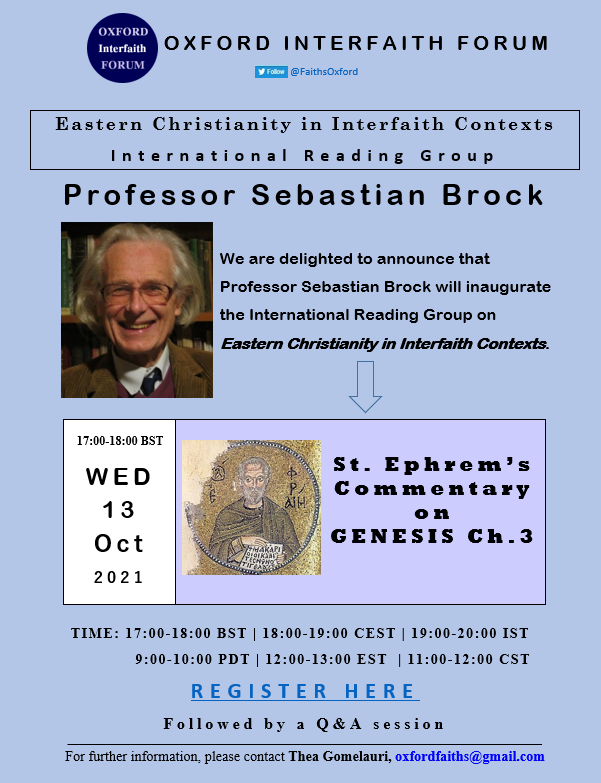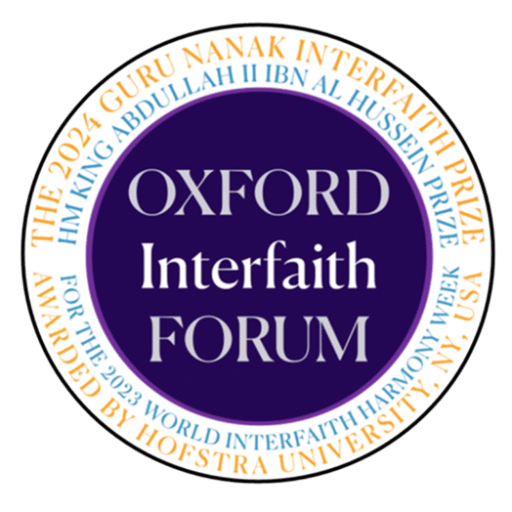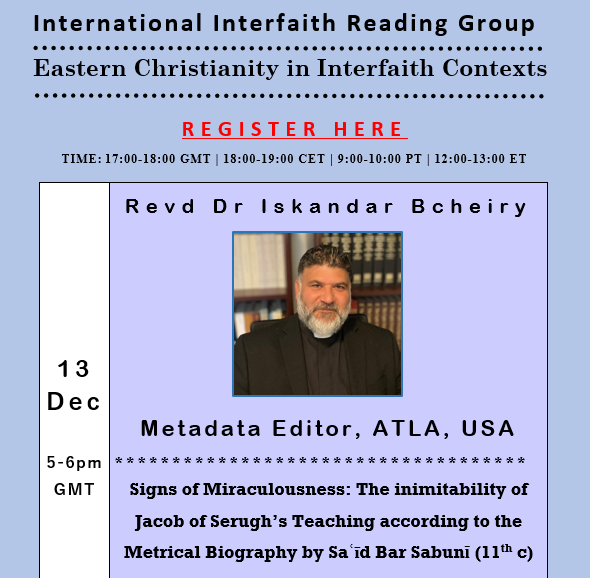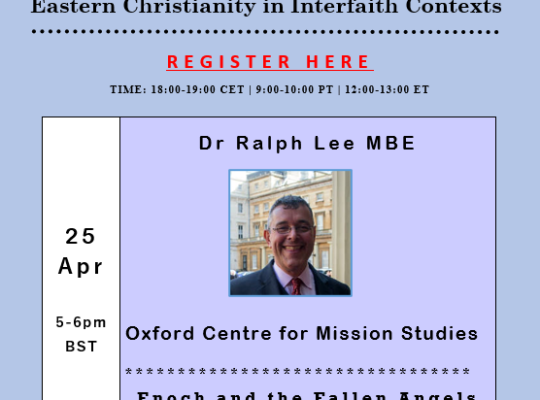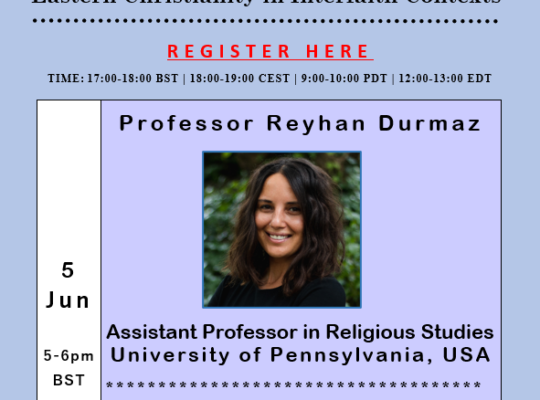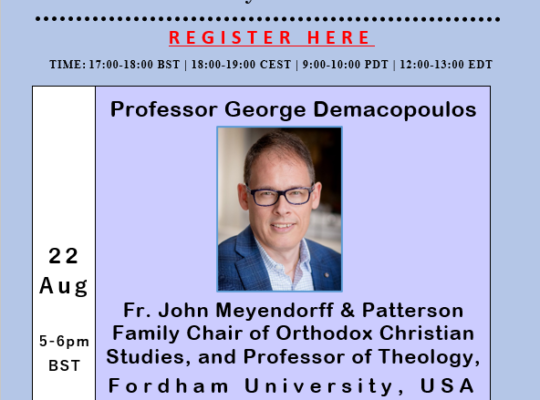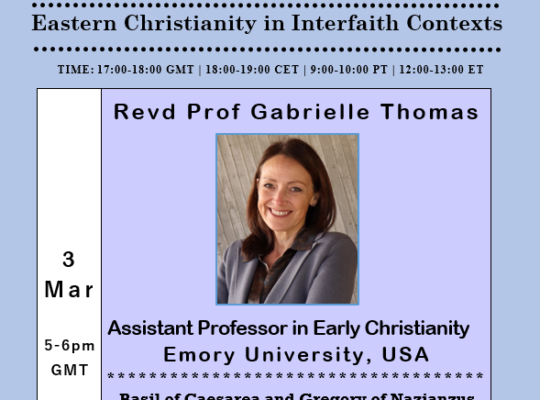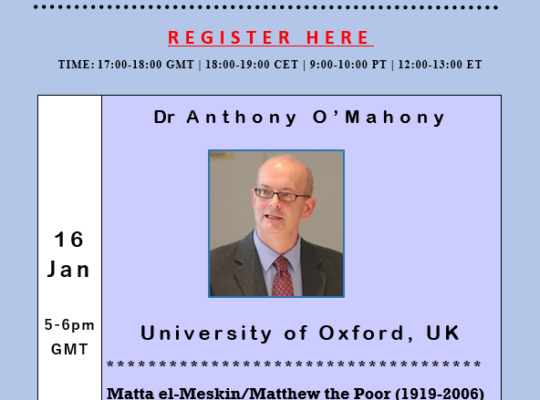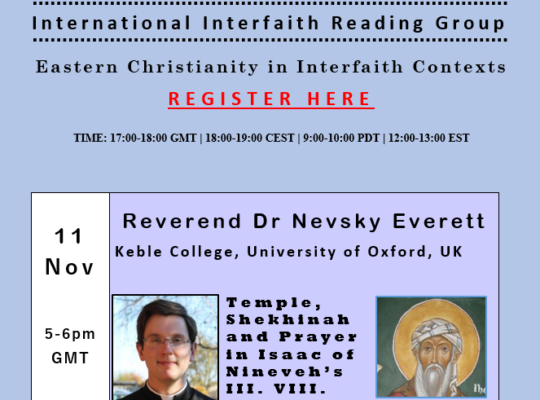13 December, 2022
We are deeply honoured to welcome Revd Dr Iskandar Bcheiry, Metadata Editor at ATLA, USA, to lead a session of the Eastern Christianity in Interfaith Contexts Reading Group.
The reading material will be circulated to those who will register in advance.
Here are the details of this fascinating session.
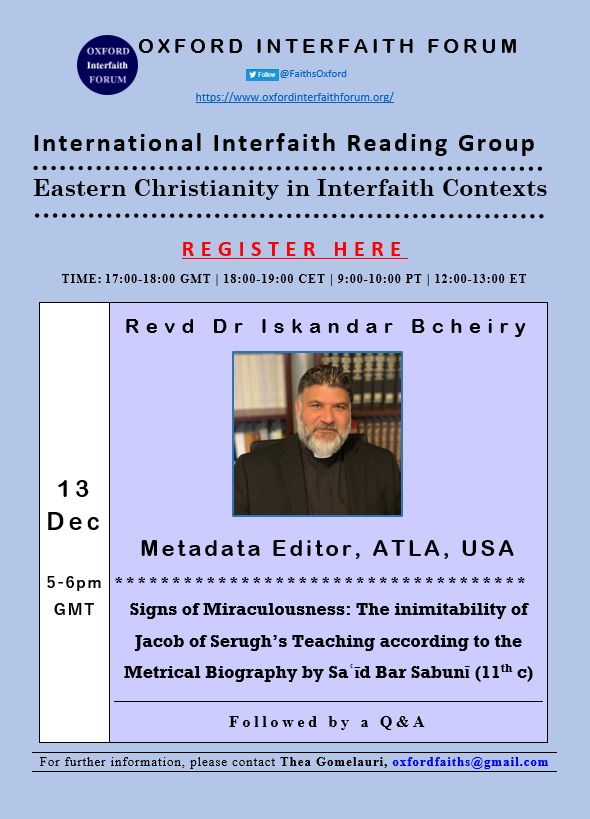
Topic: Signs of Miraculousness: The Inimitability of Jacob of Serugh’s Teaching according to the Metrical Biography by Saʿīd Bar Sabunī (11th century)
Abstract: Jacob of Serugh, (451-522), one of the fathers of the Syriac Church was an important Syriac theologian-poet. He composed a long series of metrical homilies on religious themes, which stand as his greatest works. Among the few biographical materials about his life is a metrical homily, preserved in a few Syriac manuscripts, and composed by Saʿīd bar Ṣabūnī, the Syriac Orthodox bishop of Melitene at the end of the eleventh century. This presentation aims to highlight Bar Ṣabūnī’s line of reasoning, and the structure of his argument with the supporting evidence he presents to convince his audience of the miraculousness of Jacob’s extraordinary talent for teaching, both in form and in quality. In addition to outlining the rhetorical tools, historical context, audience, and purpose of this sermon, the presentation aims to point out a possible intersection with a similar Islamic doctrine that of the inimitability of the Qurʿān.
Speaker: Revd Dr Iskandar Bcheiry, Metadata Editor, ATLA, USA, holds a PhD in Church History from the Pontifical Oriental Institute, Rome (2005), and another PhD in World Christianity and Global Missions-Christian-Muslim Studies from the Lutheran School of Theology-Chicago (2019). Revd Dr Bcheiry has published a collection of books such as “An Early Christian reaction to Islam: Išū‘yhab III and the Muslim Arabs” (Piscataway, N.J: Gorgias Press, 2019); “Hagiography, History, and Manuscript Culture: Studies in Syriac Christianity” (Kaslik: Lebanon, 2018); “Collection of Historical Documents in Relation with the Syriac Orthodox Community, in the Late Period of the Ottoman Empire” (Piscataway, N.J: Gorgias Press, 2010). Also, Revd Dr Bcheiry published numerous articles on the history of Syriac Christianity and cataloged several collections of Syriac and Arabic manuscripts. His current projects include surveying and mapping Syriac settlements and sacred places in Southeast Turkey and cataloging the Syriac manuscripts found in the Oriental Institute Museum-Chicago University. Revd Dr Iskandar Bcheiry is a Priest for the Syriac Orthodox Church, and serves as a pastor for his community in Chicago since 2006.
Chair: Professor Sebastian Brock, FBA, University of Oxford, UK
Date: Tuesday, 13 December, 2022
Time: 17:00-18:00 GMT | 9:00-10:00 PST | 12:00-13:00 EST
Venue: Online
After registering, you will receive a Zoom email containing information about joining the meeting. If you do not see the Zoom email in your inbox, please, check your spam folder.
If you would like to join the Eastern Christianity in Interfaith Contexts Reading Group, please sign up here.
Related Sessions
- The Peshitta and the Making of the Antioch Bible
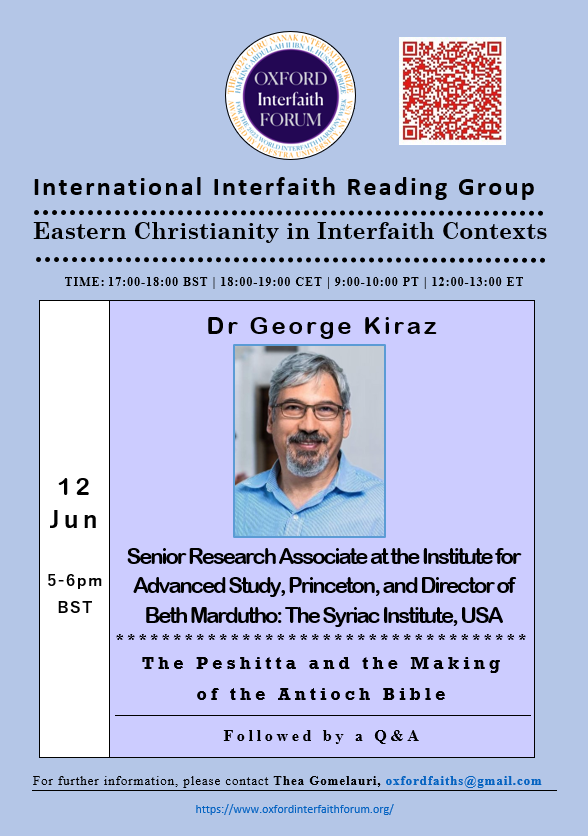
- Narsai’s Memra 49, on Adam and Eve: O Instructive Fault!
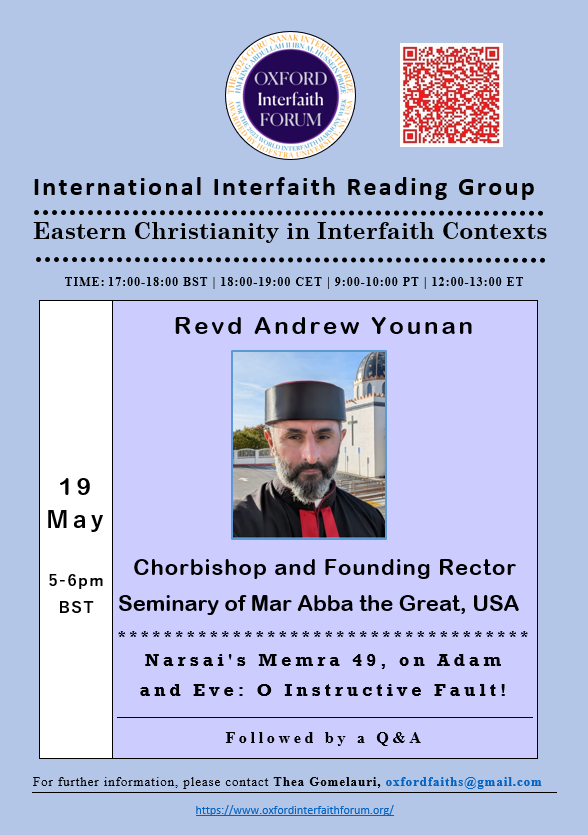
- Basil of Caesarea and Gregory of Nazianzus on the Problem with the Devil
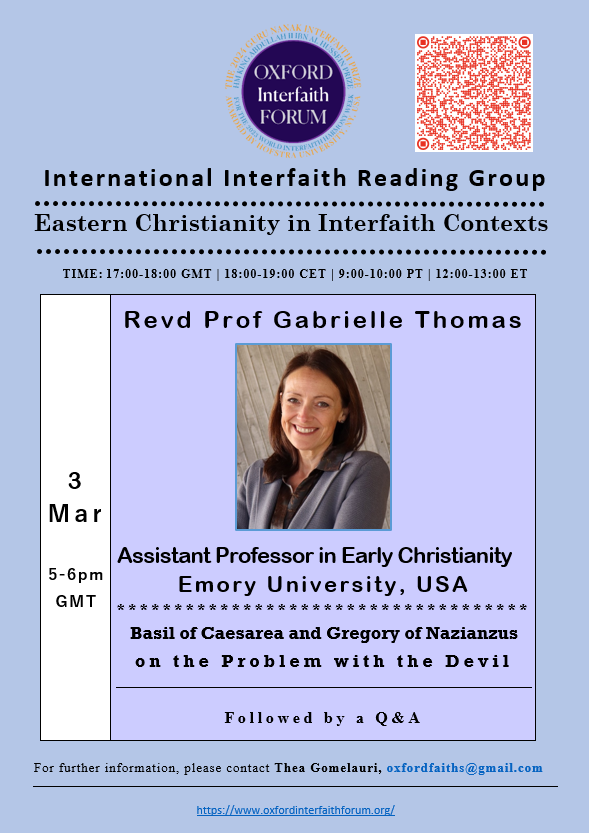
- Byzantine Aristocrat, Monk, Mystic and Dissident: Symeon the New Theologian (949-1022)
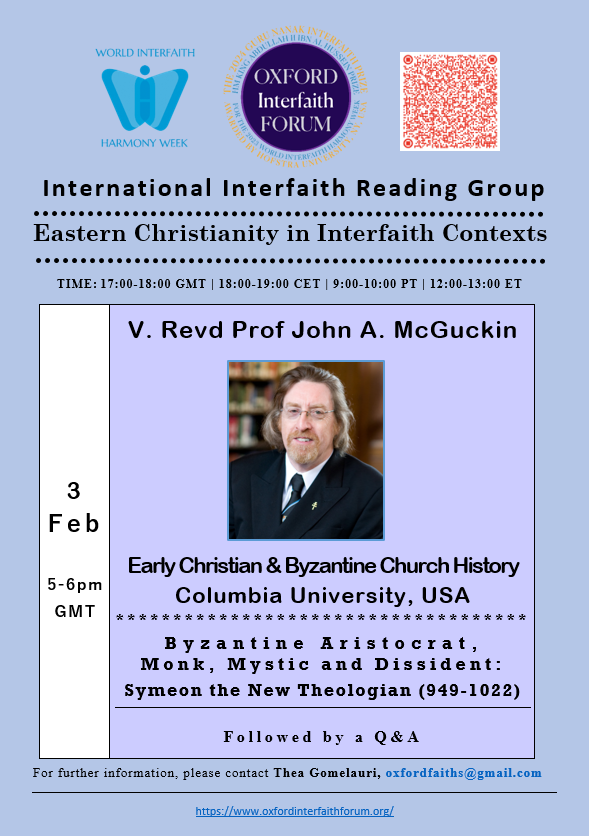
- Heavenly Hours: Creation and Time in the Syriac Testament of Adam
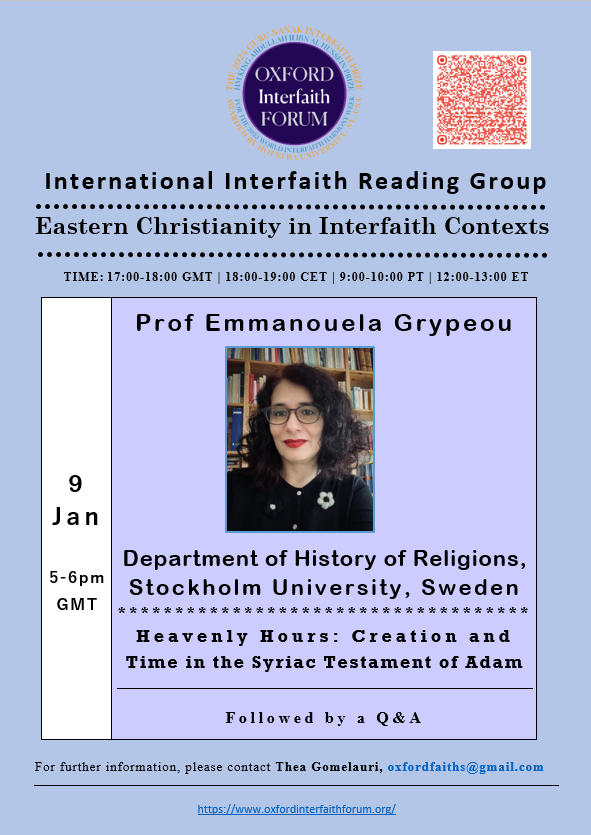
- The Monastic Homilies of Isaac of Antioch
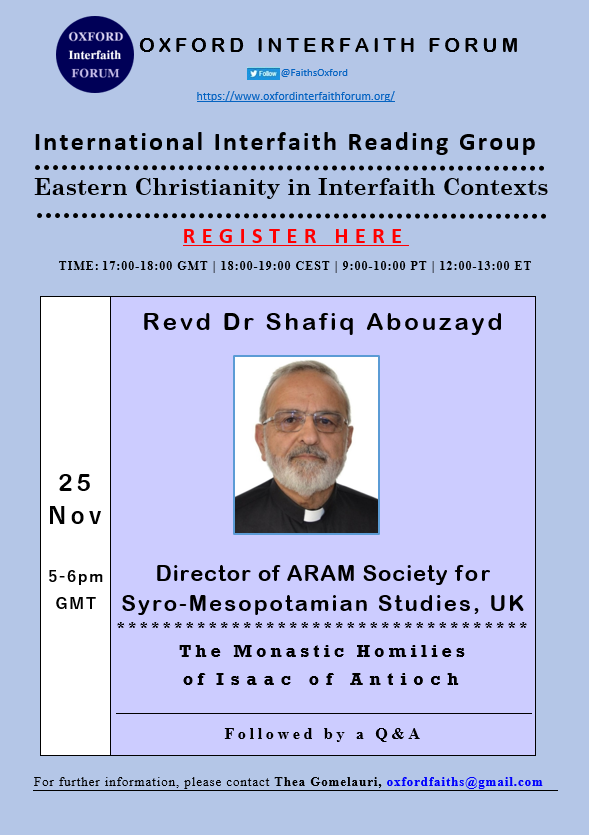
- Christian Trees
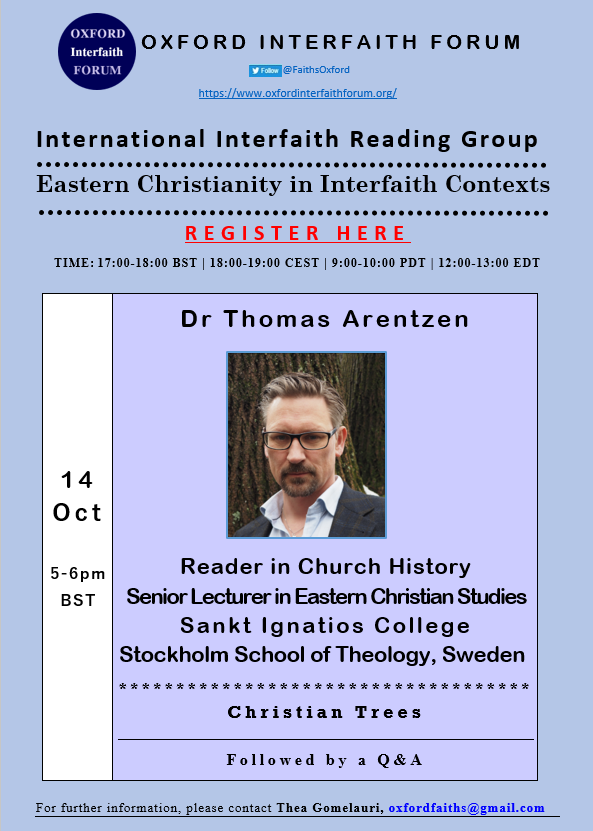
- Dialogue and Fire in a Fragmentary Syriac Martyrdom Narrative
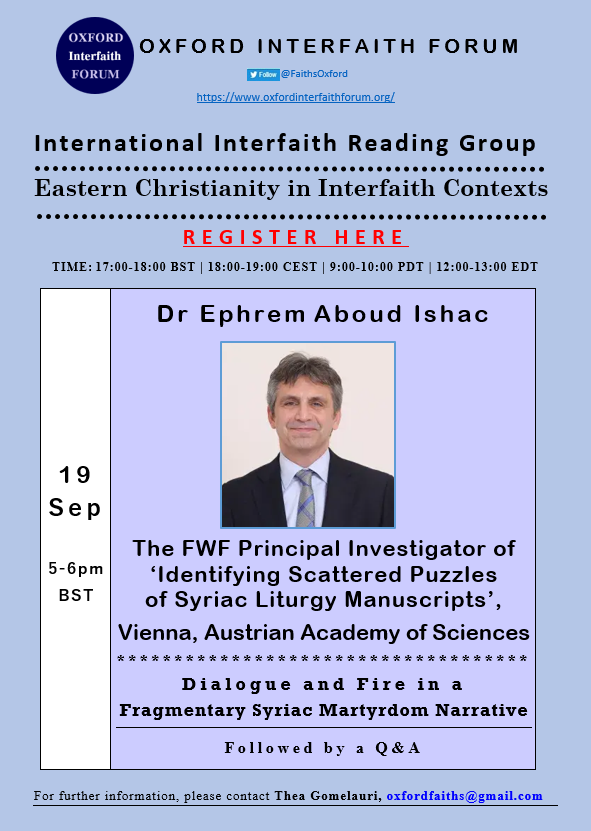
- The Origins of the First Anti-Jewish Good Friday Hymns
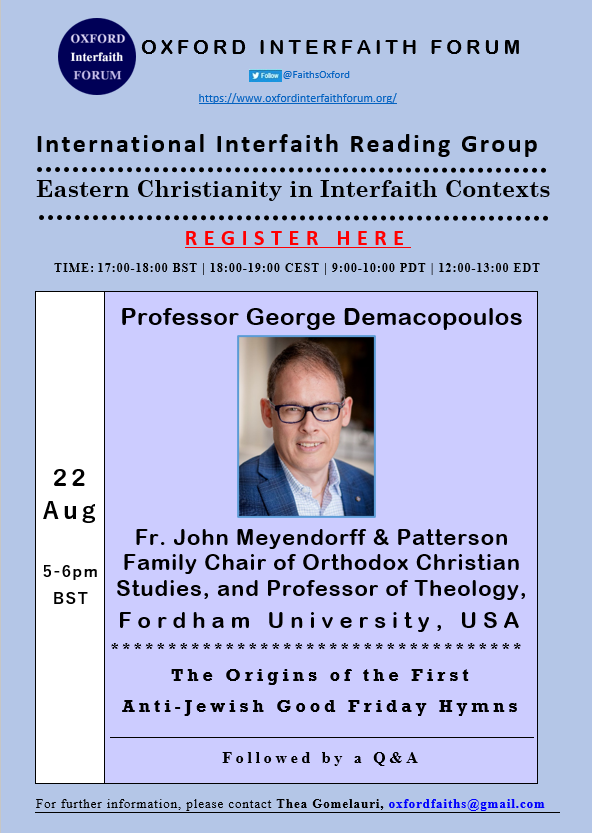
- Finding a Home: The West Syriac Context of the Clementine Epistles on Chastity
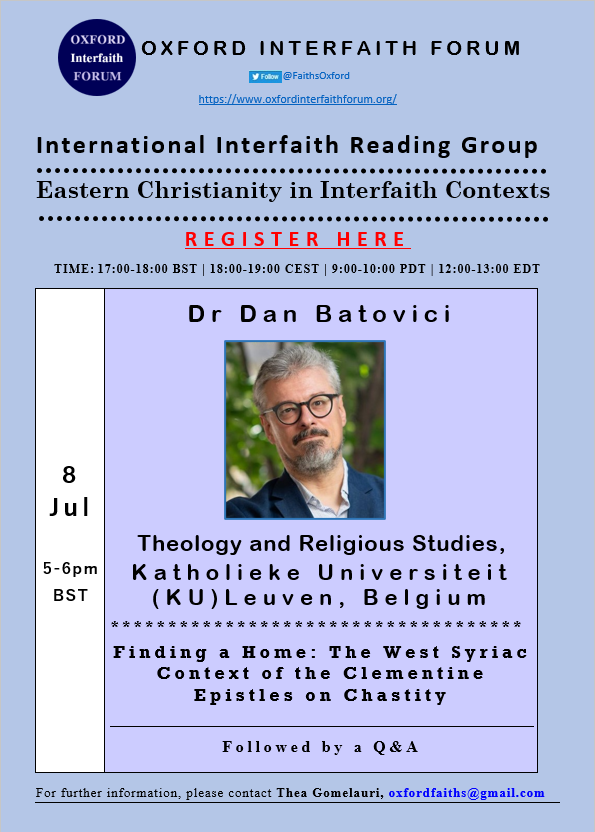
- Who was Mary, the Blessed Virgin and Mother of God? A Byzantine hagiographical narrative by the ninth-century Monk Epiphanios
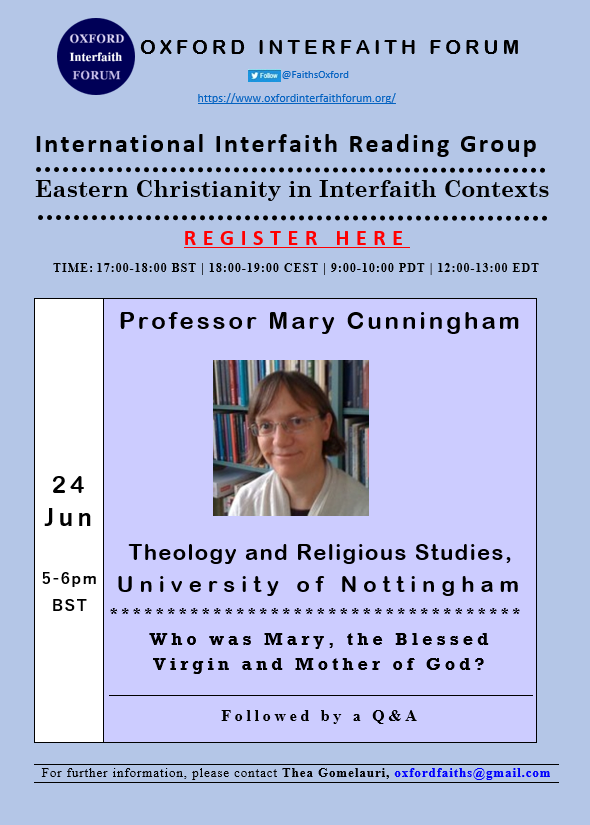
- Nikos Kazantzakis and Orthodox Christianity
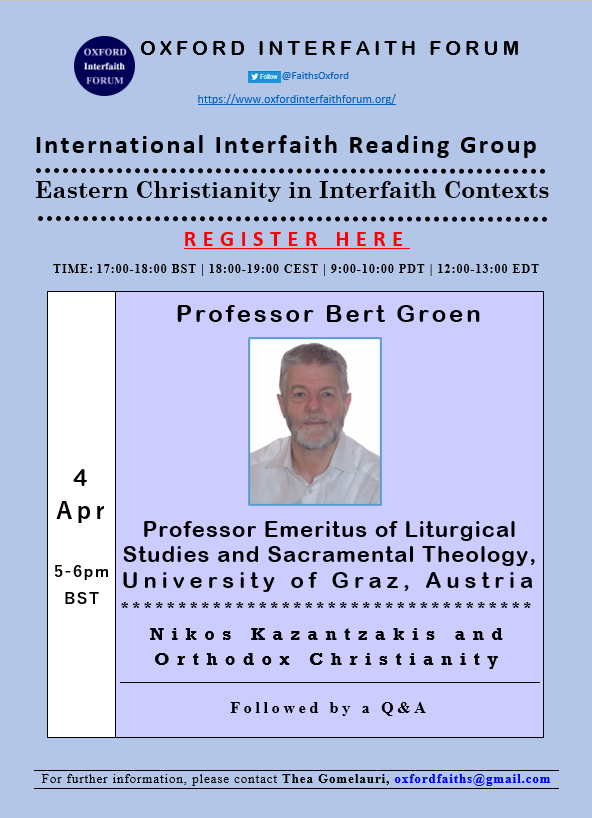
- The Miracle of Pilgrimage: A Coptic Journey to the Holy Land During the Ottoman Period
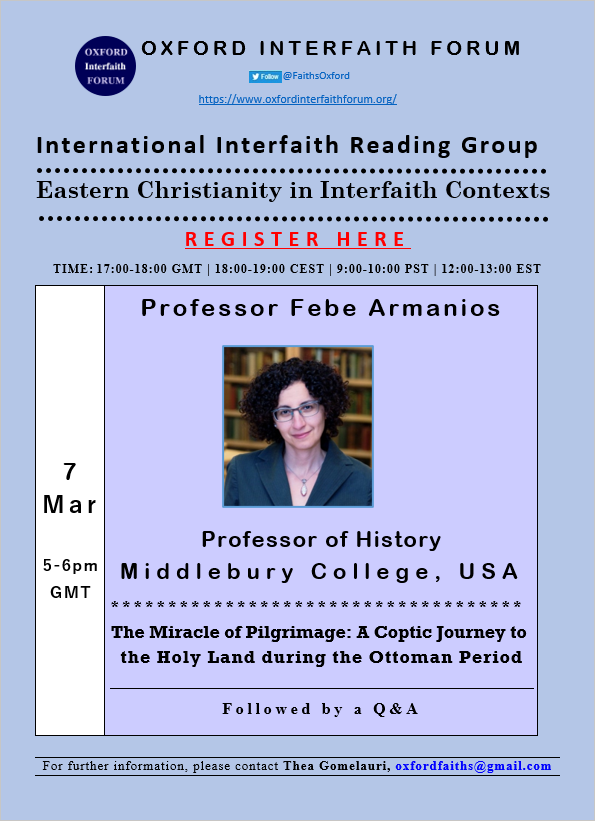
- Setting the Stage: The Rose of Performance in Studying Late Ancient Hymnody
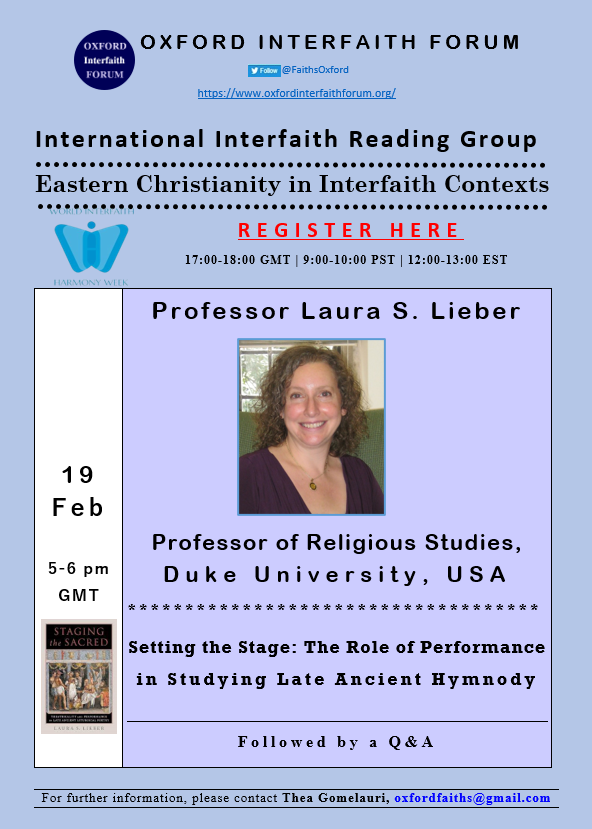
- Ephrem the Syrian and a New Beginning in Syriac Poetry
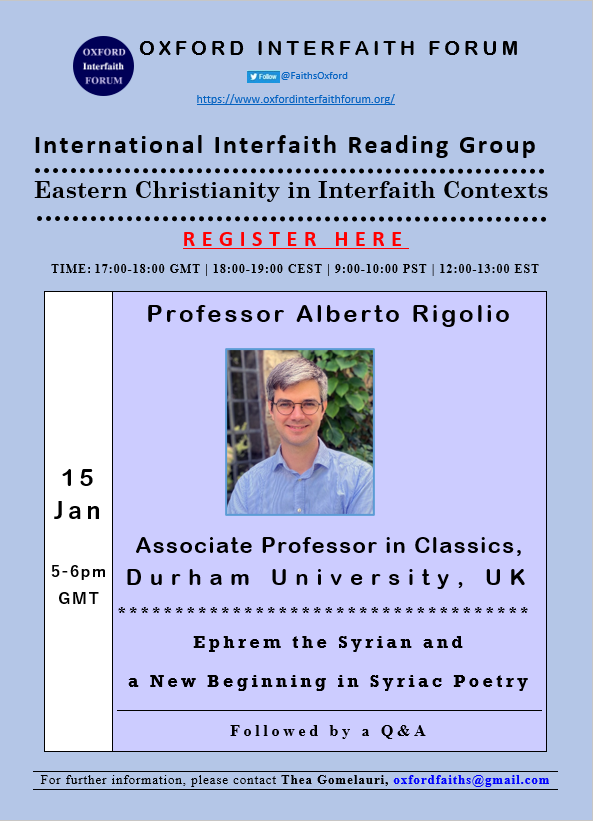
- A Jew Reads the Gospels in Syriac: Azariah de Rossi’s Critique of the Vulgate (1577)
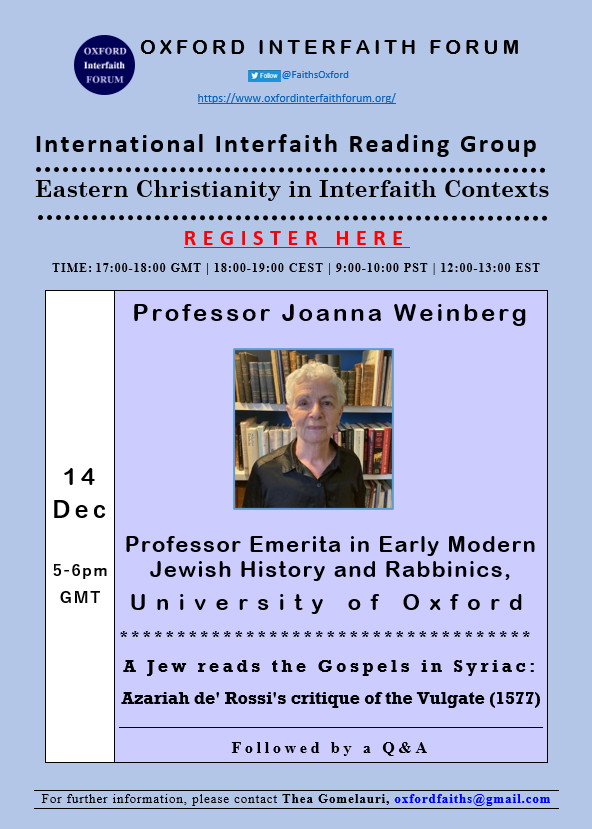
- The Manuscript Project at the Coptic Monastery of St Paul the Hermit at the Red Sea, Egypt
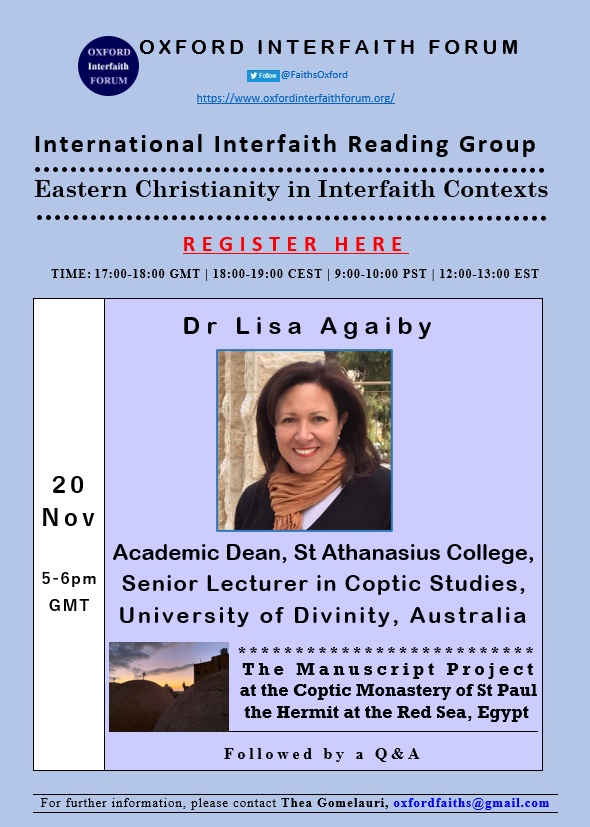
- Mary’s Ordeal: A Syriac Narrative Poem on Many and Joseph
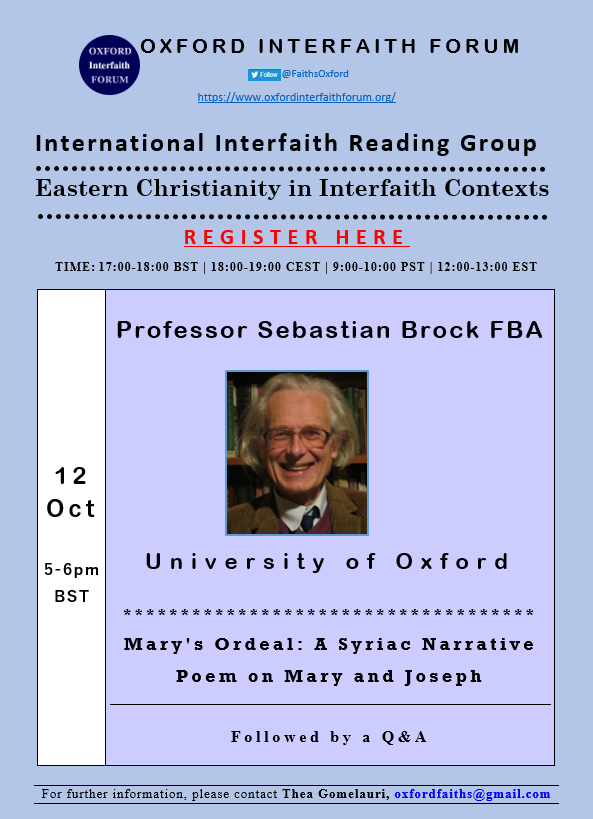
- Resurrection of the Human Body according to John of Dara’s Mimro I:4
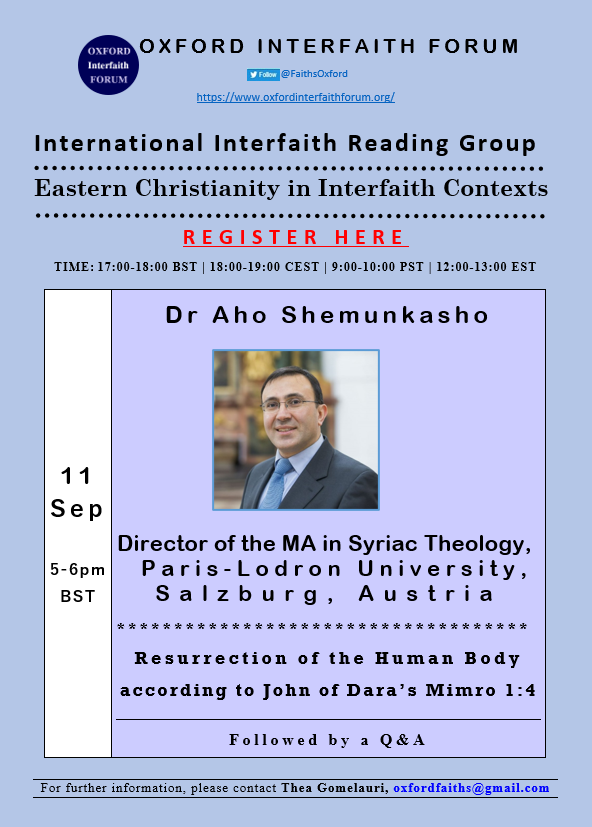
- Gregory of Nyssa: On the Human Image of God
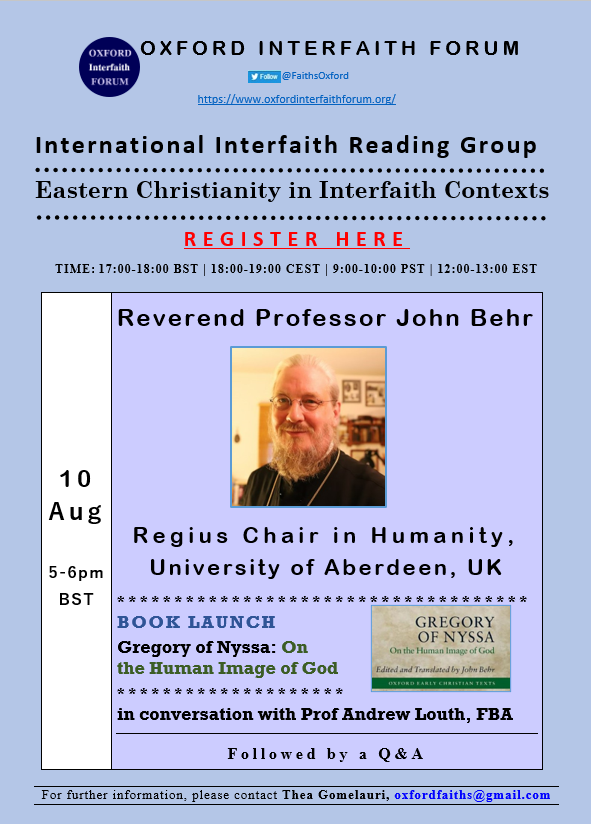
- ‘Conception by ear’ and Redemption of the Human Sensorium in Ephrem’s Thirty-fifth Madrasha on the Church
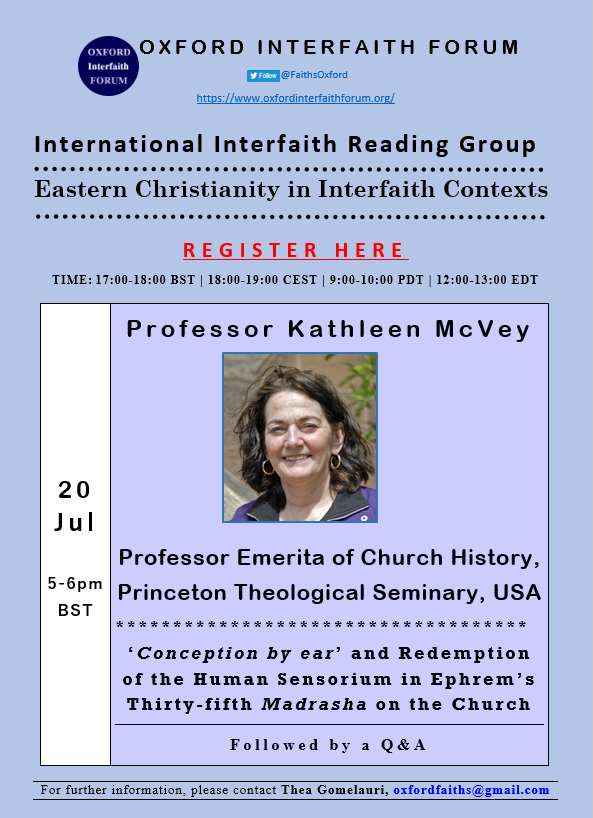
- From Edessa to South Arabia and Back: The Syriac Story of Bishop Paul and Priest John and Models of Sanctity in the Medieval Middle East
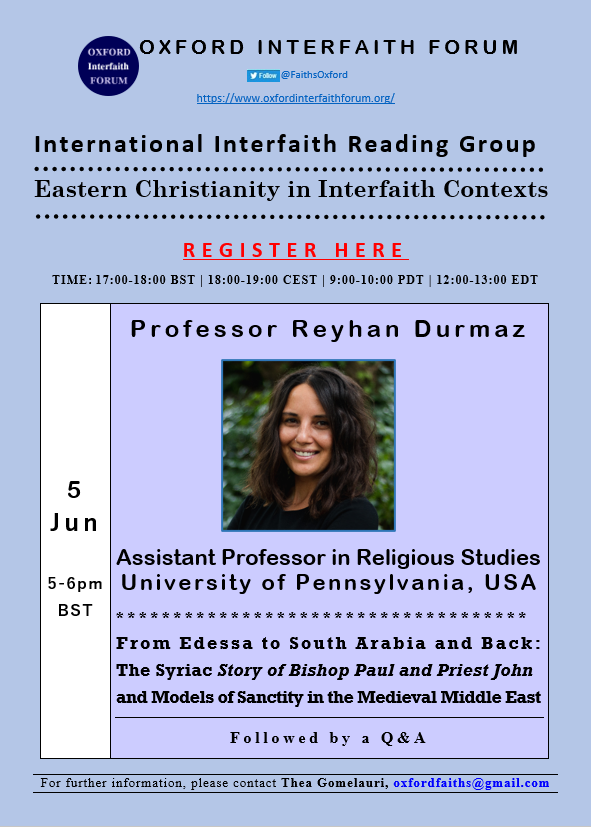
- Wrestling with Calculating-Thoughts: Mental Training according to Evagrius of Pontus
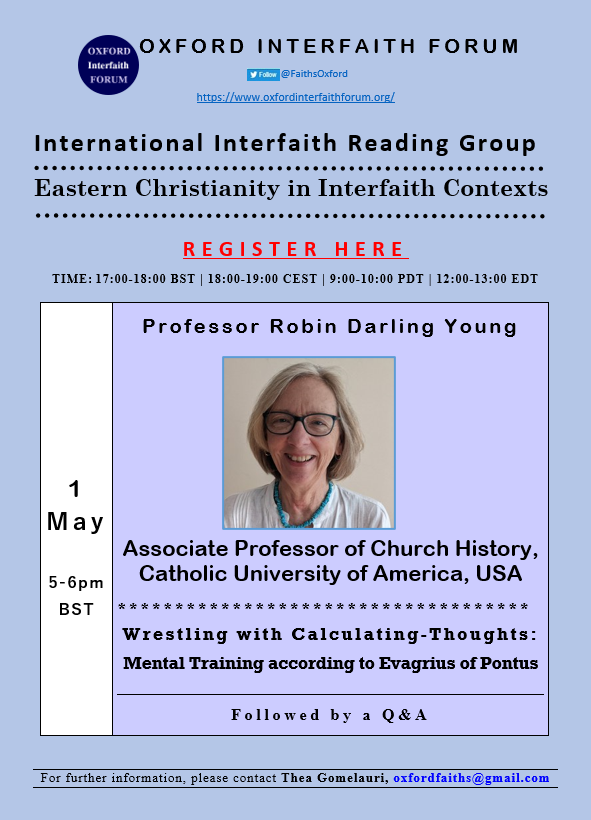
- Returning the Ticket: God and Evil in the Brothers Karamazov
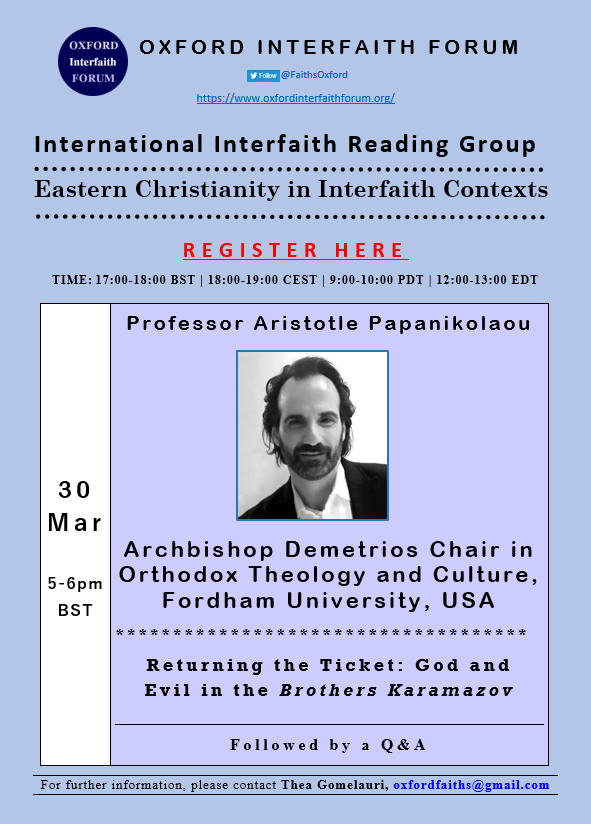
- Ecumenical Patriarch Athenagoras: an Orthodox Dialogue with Islam
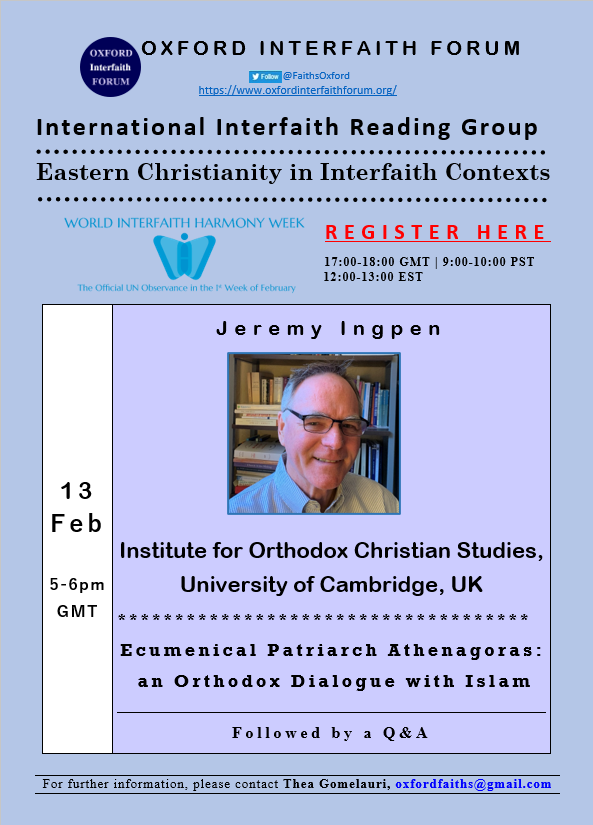
- Matta el-Meskin/Matthew the Poor: a ‘Contemporary Desert Father’ on Christian Unity
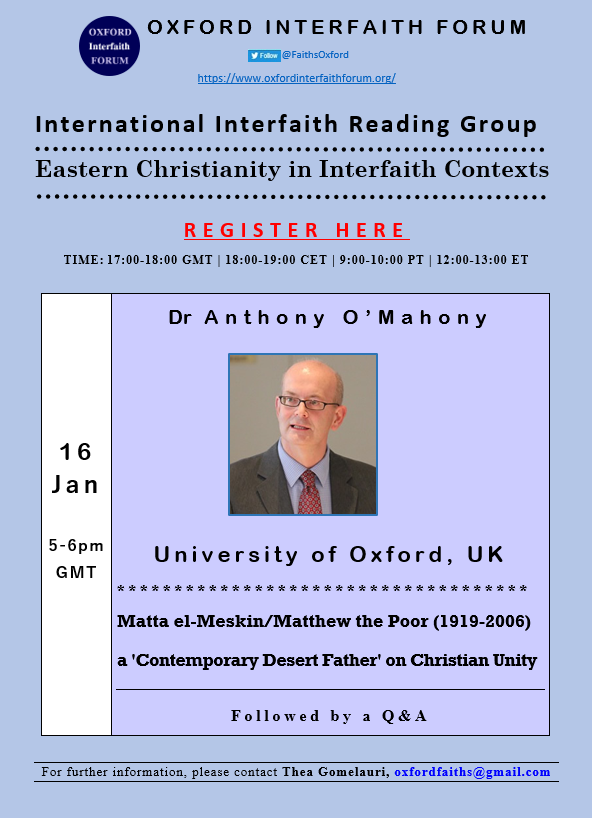
- Signs of Miraculousness: The Inimitability of Jacob of Serugh’s Teaching

- Epistolary Style in Coptic Letters from the Late Third Century to the Early Fifth Century
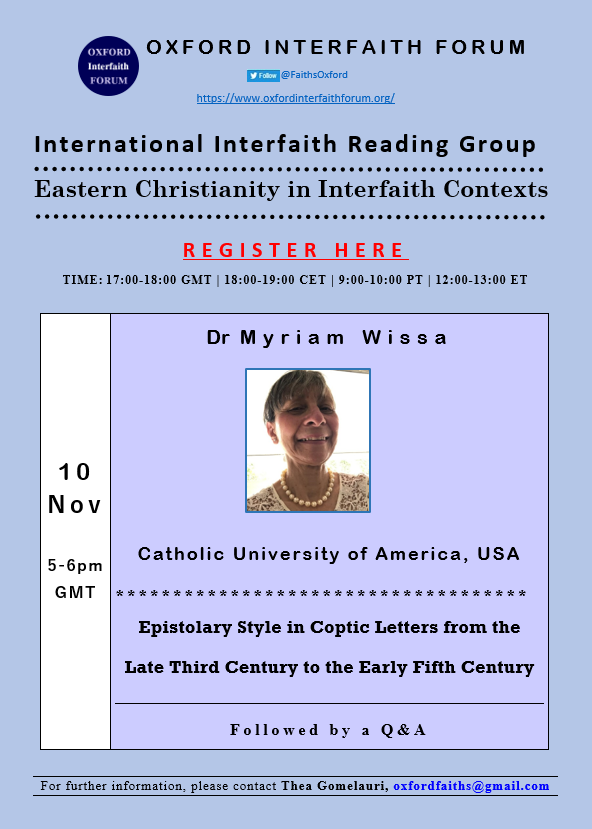
- Sarah and the Akedah: a Syriac Narrative Poem on Genesis 22
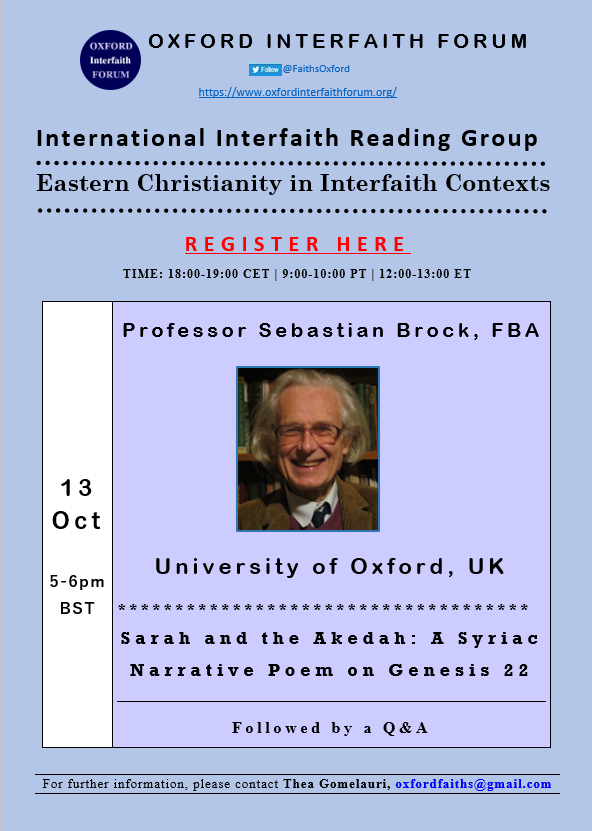
- The Paterik of the Kyivan Caves Monastery: Monk Polikarp in Discourse 14
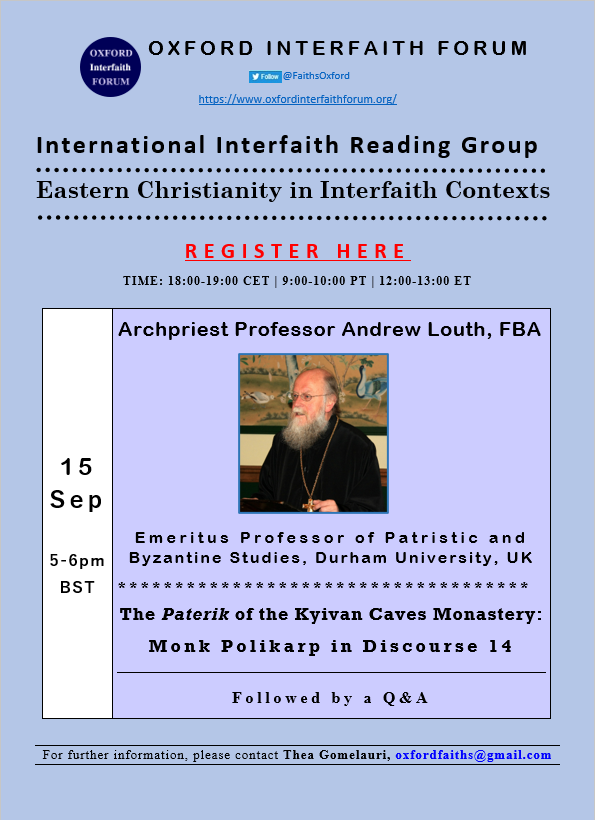
- Jacob of Sarug on the Canaanite Woman (Mt 15:21-28, Mk 7:24-30): Biblical Storytelling and Models of Faith
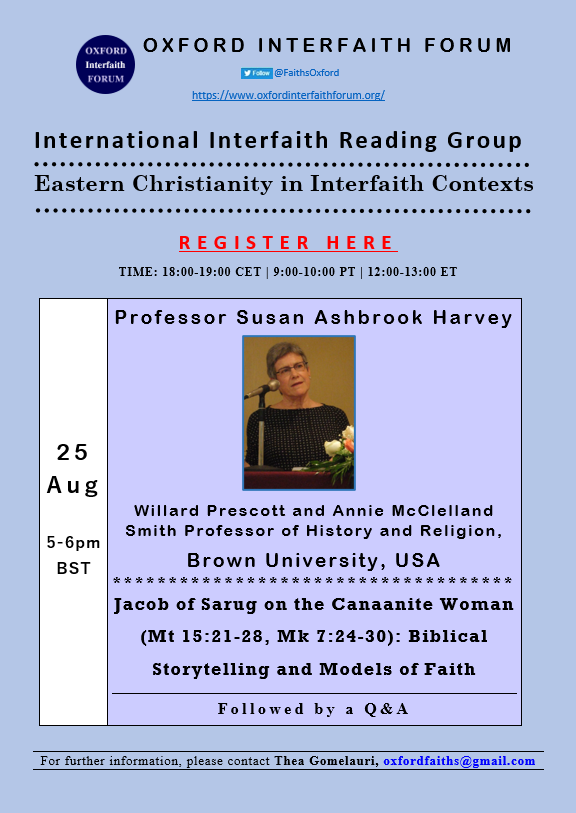
- Commemorating the saints at Turfan: Mart Shir and Mar Barshabba
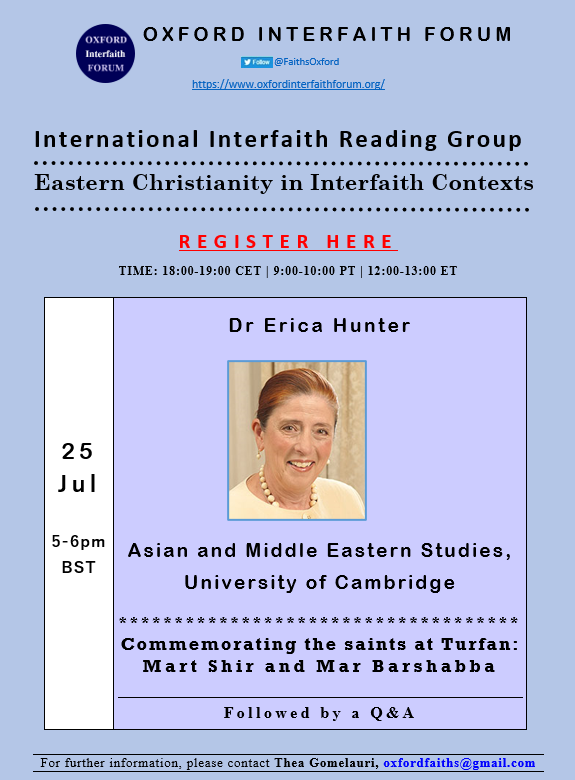
- The Opening Prayers of Saint Gregory of Narek’s Book of Lamentations
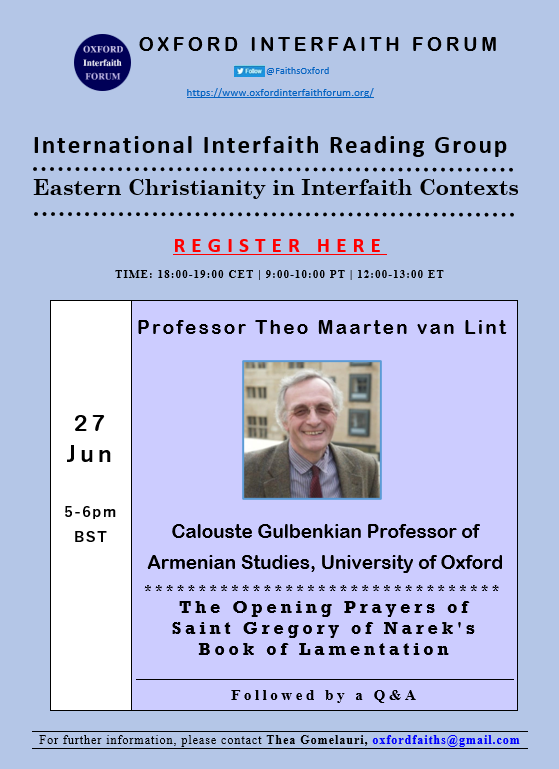
- Alexander Schmemann on Theotokos vis-à-vis Kali a Hindu Mother Goddess
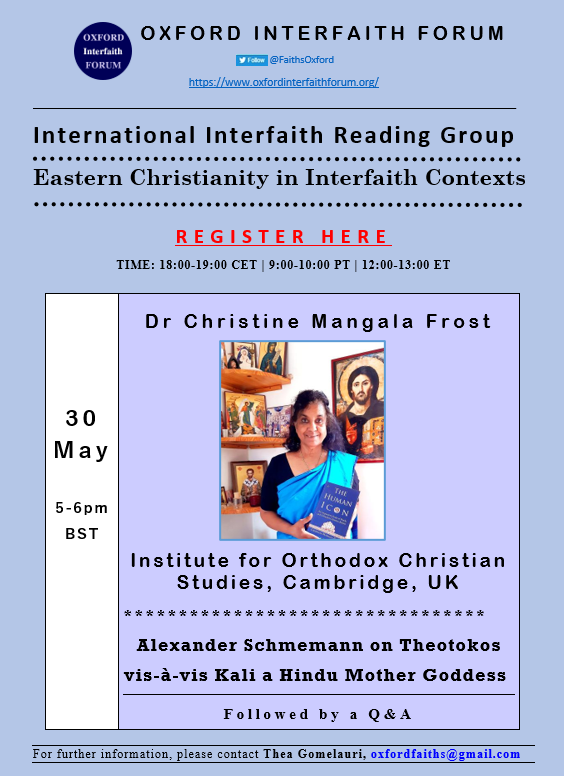
- Enoch and the Fallen Angels in the Ethiopian Tradition
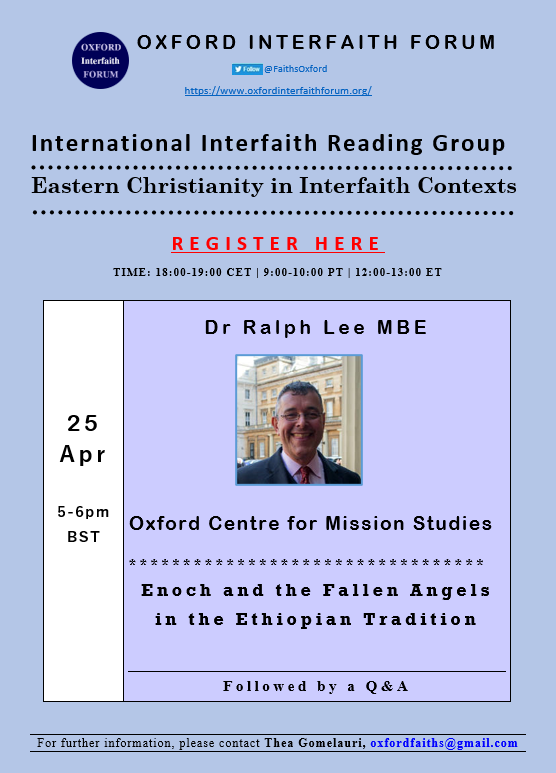
- Narsai on the Virgin Mary
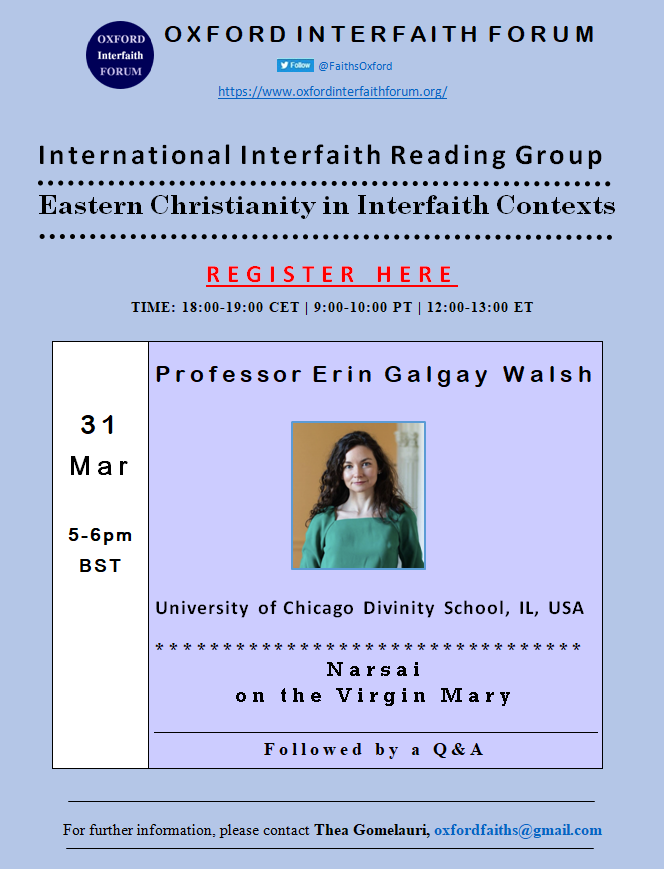
- An Anonymous Syriac Dialogue between Mary and the Angel
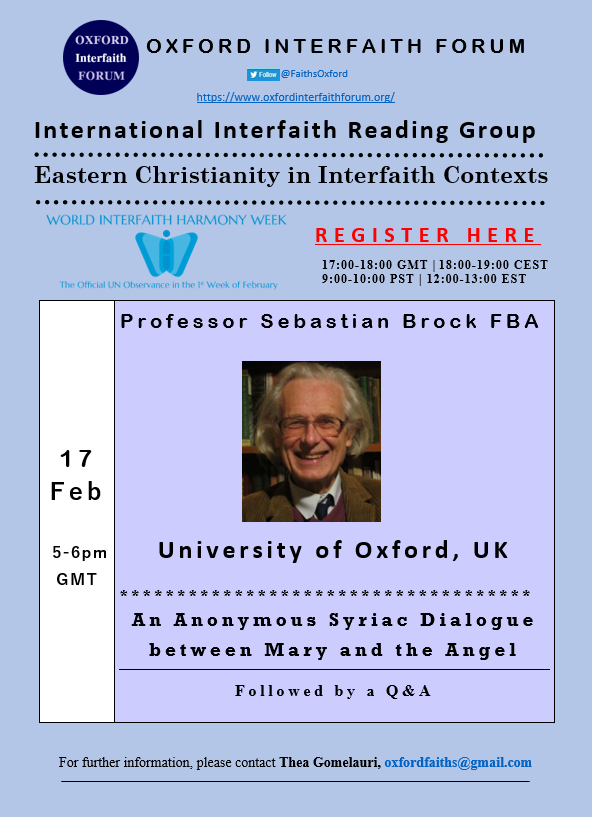
- Dadisho of Qatar: Questioning the Desert Fathers
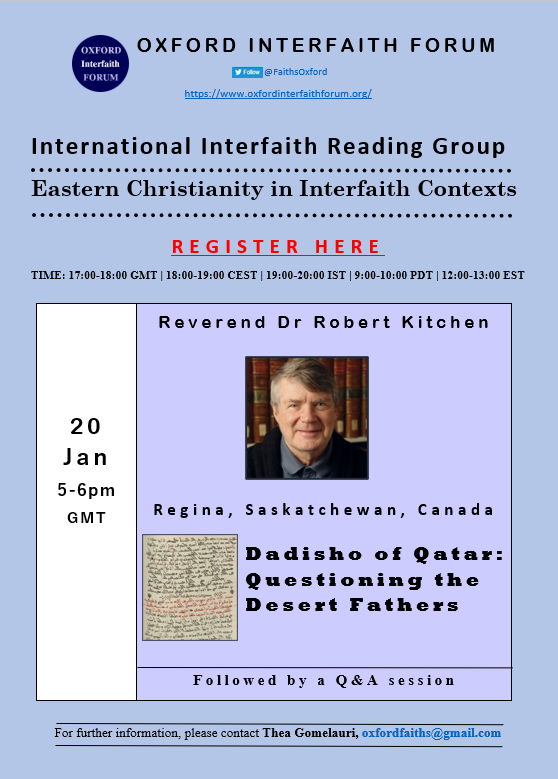
- George the Athonite on Matters of Faith and Rite, According to the Life of St George the Hagiorite
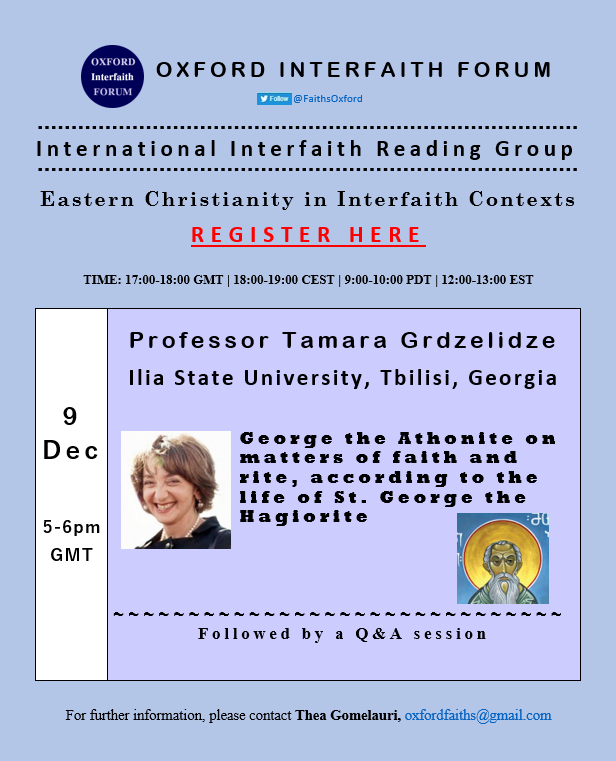
- Temple, Shekhinah and Prayer in Isaac of Nineveh’s III.VIII
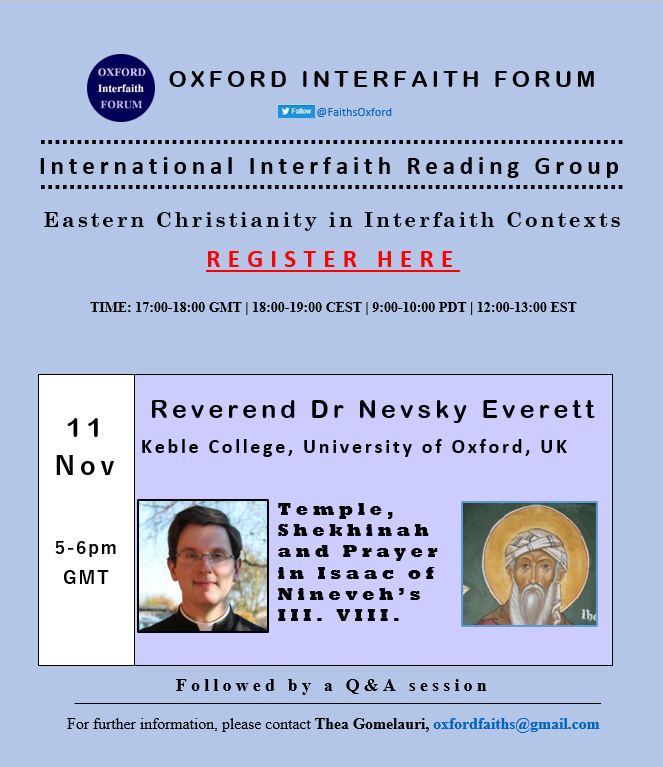
- St. Ephrem’s Commentary on Genesis Ch.3
